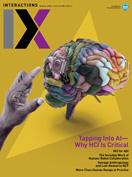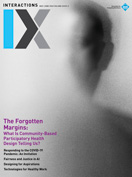Authors:
Gopinaath Kannabiran
The last time I met David Hakken was at his office. We both knew we would not meet again. He was calm; sitting with him, there in his office, felt comforting. He told me he did not know how long he had to live, and that the next course of treatments for his cancer were going to be aggressive.
Me: Are you afraid, David?
David: Of dying? Yes. Do you believe in life after death?
Me: No. But I believe in love.
David: [smiling] People have been very kind to me. It feels nice to know that you are loved.
Me: David... You have touched so many lives. And inspired so many. You are sitting here laughing and making jokes when you're waiting for death. I'm not sure what else one can ask of a human being.
David: [smiling] I'm not sure either.
Me: I am so grateful to have met you in my life. Thank you for being my teacher. I want a good long hug from you.
[We both got up and hugged each other for a few minutes.]
Me: I love you, David.
David: I love you too, Gopi.
David Hakken was many things to many people—ethnographer, educator, advisor, critic, storyteller, activist, debate stirrer, idea nourisher, mentor, writer, human rights advocate, visionary leader [1], pioneering researcher [2], inspiring colleague [3], caring academic [4], snazzy dresser, and reliable friend. I was fortunate to take classes with him and work with him on my doctoral dissertation research. David passed away on May 3, 2016, from cancer. At his memorial, I did not have anything to say but it was nice to see all the love he had in his life and to hear people's memories of him. It was sad and beautiful to experience the mourning and meaning of a life well lived.
David made several important contributions to research and teaching in STS and informatics. His legacy is not just his towering intellectual contributions but, more importantly, the tribe he nourished. As a graduate student, I was enchanted by David in class. He spoke with insight and listened with curiosity. When I get engrossed in a subject, I sometimes overstep or forget social conventions such as taking turns to talk. David and I once got into a debate during class and I kept arguing with him. During break, I realized that I had spoken for too long and that I might have come across as aggressive. I approached him after class and apologized for my behavior. He responded: "I am a little bit more secure in myself than that, Gopi." I had a newfound respect for him and remember thinking to myself: I want to be like David someday.
When I decided to do my Ph.D., I braced myself mentally for the hard intellectual work ahead. But I was unprepared for the amount of emotional work that doing research and being a researcher demand. As good researchers, we are required to question our own assumptions and understanding of the world. They say rejection is a part of the game. And even though we rationally know not to take rejections personally, it can still hurt because we are human. We may feel discouraged when projects close to our heart face setbacks.
What I learned from David is not merely research skills but also life wisdom that I will continue practicing for the rest of my life.
During my Ph.D., I have had several conversations with students and researchers from different countries about their work and found a common theme: cynicism. Bluntly put, if everything is bad, why even try? I used to feel a sense of debilitating dread of being stuck—aware of the problems around me and unable to do anything about them because... what's the point? Kathleen Norris talks about acedia as an "absence of care [when] life becomes too challenging and engagement with others too demanding" [5]. Too burned out to care, too exhausted to hope. I have seen some brilliant, passionate, and kind people, of different ages and backgrounds, either personally unravel (mental health issues, substance abuse, relationship problems, etc.) or leave academia to avoid doing so. I got cynical. And I hated being cynical. David was an experienced researcher who tackled difficult social justice issues throughout his academic career. But I never heard him be cynical. Every time I feel like quitting because I think something is impossible or pointless, I remember David.
Walter Lippmann wrote, "The final test of a leader is that he leaves behind him in other[s] the conviction and the will to carry on." What I learned from David is not merely research skills but also life wisdom that I will continue practicing for the rest of my life. It makes a world of difference to see a life well lived on a day-to-day basis through conversations over tea, inside jokes, and shared silences. There are lots of horror stories about abuse of power and toxic attitudes in academia. As a feminist, I am glad that such incidents are discussed in public so that we can collectively address the issues that plague the well-being of our research communities. At the same time, I feel compelled to document and share the life-affirming experiences that happen in academia and its impacts on research-knowledge production in service toward social justice issues.
 |
David Hakken |
Behind the h-indices and awards, there are lovely human beings who have inspired others to live their best lives and dedicated themselves to the betterment of life for all. And it is their stories that I want to bring to light and share through this blog series, titled "Sitting with..." My goal is to document and share with a wider audience some of the personal, life-affirming experiences my guests have had in their full careers as researchers. Since I am asking others to share something personal, it felt fair that I start the blog series by sharing my personal relationship with David—or, as I call him, "my Gandalf."
It feels befitting to memorialize David by creating a blog series focused on telling people's life-affirming stories. I miss him. And that makes me want to live by what I learned from him. That is the only way I know how to keep him alive in my universe. I flail and fail but I refuse to give up because I have had teachers like David. He listened in a way that made the other person feel heard. He showed up for events to support students and colleagues, come rain or shine. These are life lessons that I learned from David, not by preaching dogma but through example.
For this blog series, I would like to interview senior researchers from diverse backgrounds who have either retired or are close to retirement. By diverse backgrounds, I mean people across disciplines, with varied work experiences in academia, industry, NGOs, and so on, from various countries. I would like to hear, document, and share significant personal-growth moments and challenges faced in the course of their careers as researchers. If you are a senior researcher (retired or close to retirement) and willing to share your experiences through this blog series, I would like to interview you about some of the life-affirming personal growth moments in the span of your career. Kindly contact me through email.
1. https://www.pdc2020.org/the-david-hakken-grant/
2. https://castac.org/grad-student-paper-prize/
3. https://nomadit.co.uk/conference/easst2016/p/4773
4. Bardzell, J. and Bardzell, S. From the shadows of fearless speech: Working alongside David Hakken. Anthropology of Work Review 39, 1 (2018).
5. Norris, K. Acedia & Me: A Marriage, Monks, and a Writer's Life. Riverhead Books, 2010.
Gopinaath Kannabiran is currently working as a postdoctoral researcher in the Department of Computer Science, Aarhus University, Denmark. [email protected]
Copyright held by author
The Digital Library is published by the Association for Computing Machinery. Copyright © 2020 ACM, Inc.








Post Comment
No Comments Found